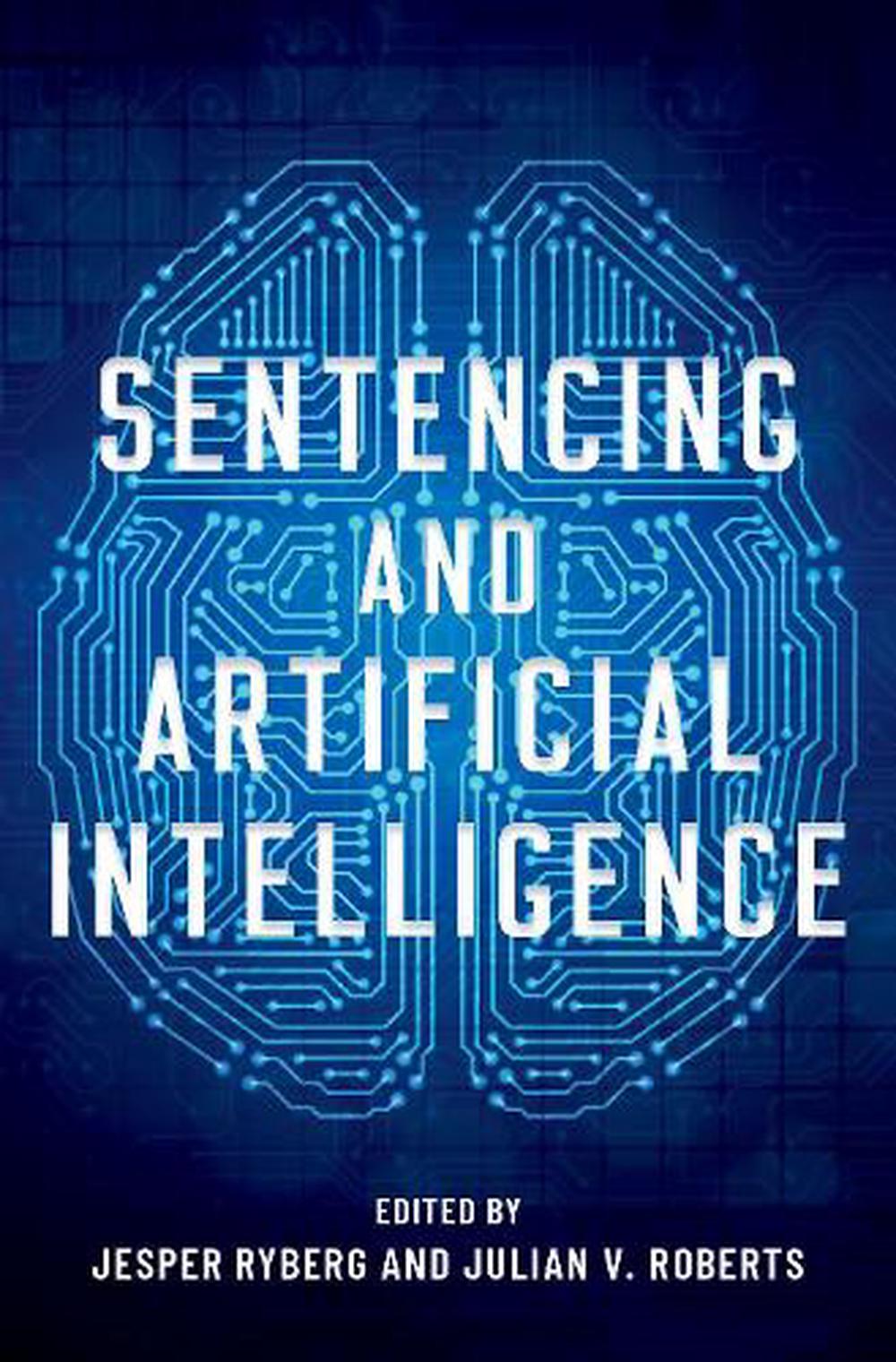
Sentencing and Artificial Intelligence
by Jesper Ryberg, Julian V. Roberts
The first collective work devoted exclusively to the ethical and penal theoretical considerations of the use of artificial intelligence at sentencing Is it morally acceptable to use artificial intelligence (AI) in the determination of sentences on those who have broken the law? If so, how should such algorithms be used--and what are the consequences? Jesper Ryberg and Julian V. Roberts bring togetherleading experts to answer these questions. Sentencing and Artificial Intelligence investigates to what extent, and under which conditions, justice and the social good may be promoted by allocating parts of the mostimportant task of the criminal court--that of determining legal punishment--to computerized sentencing algorithms. The introduction of an AI-based sentencing system could save significant resources and increase consistency across jurisdictions. But it could also reproduce historical biases, decrease transparency in decision-making, and undermine trust in the justice system. Dealing with a wide-range of pertinent issues including the transparency of algorithmic-based decision-making, thefairness and morality of algorithmic sentencing decisions, and potential discrimination as a result of these practices, this volume offers avaluable insight on the future of sentencing.
Hardcover
English
Brand New
Author Biography
Jesper Ryberg is Professor of Ethics and Philosophy of Law at Roskilde University and Head of Research Group for Criminal Justice Ethics. He is the author of, among others, Neurointerventions, Crime, and Punishment (OUP 2020), Sentencing Multiple Crimes (ed. with Roberts and de Keijser; OUP 2018) and Popular Punishment: On the Normative Significance of Public Opinion (ed. with J. V. Roberts; OUP 2014.)Julian V. Roberts is Professor of Criminology in the Faculty of Law, University of Oxford and was a member of the Sentencing Council of England and Wales and an advisor to the American Law Institute Model Penal Code Sentencing project. His recent books include Paying for the Past (OUP 2019), Criminal Justice: A Very Short Introduction (OUP 2015), and Popular Punishment (OUP 2014).
Table of Contents
AcknowledgementsList of ContributorsChapter One: Sentencing and Artificial Intelligence: Setting the StageJesper Ryberg and Julian V. RobertsChapter Two: Sentencing and Algorithmic TransparencyJesper RybergChapter Three: Sentencing and the right to reasonsVincent ChiaoChapter Four: Sentencing and the Conflict Between Algorithmic Accuracy and TransparencyJesper Ryberg and Thomas S. PetersenChapter Five: Algorithm-based sentencing and discriminationKasper Lippert-RasmussenChapter Six: Learning to discriminate: The Perfect Proxy Problem in Artificially Intelligent Crime PredictionBenjamin Davies and Thomas DouglasChapter Seven: Enhancing the Integrity of the Sentencing Process Through the Use of Artificial IntelligenceMirko Bagaric and Dan HunterChapter Eight: The Compassionate Computer: Algorithms, Sentencing, and MercyNetanel Dagan and Shmuel BaronChapter Nine: Algorithmic Sentencing: Drawing Lessons from Human Factors ResearchJohn ZerilliChapter Ten: Plea Bargaining, Principled Sentencing, and Artificial IntelligenceRichard LippkeChapter Eleven: Reconciling Artificial and Human Intelligence: Supplementing and Not Supplanting the Sentencing JudgeMathis Schwarze and Julian V. RobertsChapter Twelve: Artificial Intelligence and Sentencing: Humans against the MachineSigrid van Wingerden & Mojca PlesnicarChapter Thirteen: Iudicium ex Machinae - The Ethical Challenges of Automated Decision-Making at SentencingFrej Klem ThomsenIndex
Review
This book includes several interesting studies and cases from the US on the use of AI in sentencing ... How far we will go to embrace AI in sentencing remains to be seen. This volume highlights the importance of critical assessment before further adoption. * Kitan Ososami, The Gazette *
In Sentencing and Artificial Intelligence, they have curated a powerful and compelling collection of essays on the application of a new technology to an old problem [...] Ryberg and Roberts succeed admirably * Aziz Z. Huq, Frank and Bernice J. Greenberg Professor of Law, The University of Chicago, Criminal Justice Ethics *
[A] brilliant volume [...] timely, readable and authoritative contributions on a contemporary issue spanning ethics and justice * R. D. McCrie, John Jay College of Criminal Justice, CUNY *
Long Description
The first collective work devoted exclusively to the ethical and penal theoretical considerations of the use of artificial intelligence at sentencingIs it morally acceptable to use artificial intelligence (AI) in the determination of sentences on those who have broken the law? If so, how should such algorithms be used--and what are the consequences?Jesper Ryberg and Julian V. Roberts bring together leading experts to answer these questions. Sentencing and Artificial Intelligence investigates to what extent, and under which conditions, justice and the social good may be promoted by allocating parts of the most important task of the criminal court--that of determining legal punishment--to computerized sentencing algorithms. The introduction of an AI-based sentencing system could save significant resources and increase consistencyacross jurisdictions. But it could also reproduce historical biases, decrease transparency in decision-making, and undermine trust in the justice system. Dealing with a wide-range of pertinent issues including the transparency of algorithmic-based decision-making, the fairness and morality of algorithmicsentencing decisions, and potential discrimination as a result of these practices, this volume offers avaluable insight on the future of sentencing.
Review Quote
"In Sentencing and Artificial Intelligence, they have curated a powerful and compelling collection of essays on the application of a new technology to an old problem [...] Ryberg and Roberts succeed admirably" -- Aziz Z. Huq, Frank and Bernice J. Greenberg Professor of Law, The University of Chicago, Criminal Justice Ethics "[A] brilliant volume [...] timely, readable and authoritative contributions on a contemporary issue spanning ethics and justice" -- R. D. McCrie, John Jay College of Criminal Justice, CUNY
Feature
Selling point: A timely investigation into the use of artificial intelligence in criminal sentencingSelling point: Addresses important ethical and theoretical considerations of determining legal punishment through algorithmsSelling point: Brings together leading experts in law, criminal justice, and philosophy to investigate a wide array of issues around AI sentencing
Details

